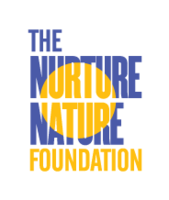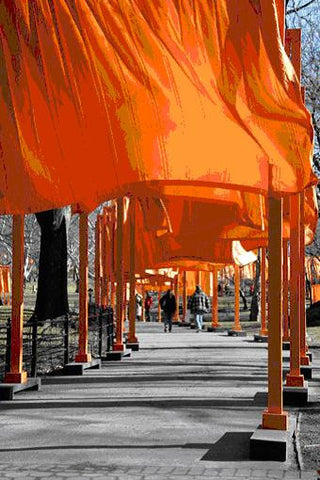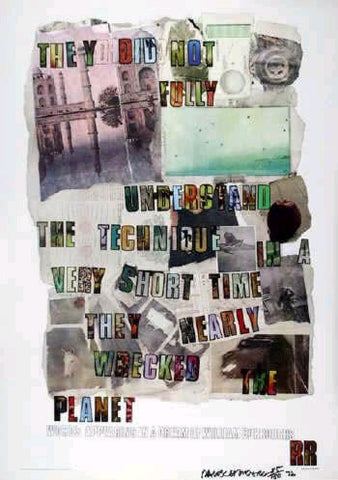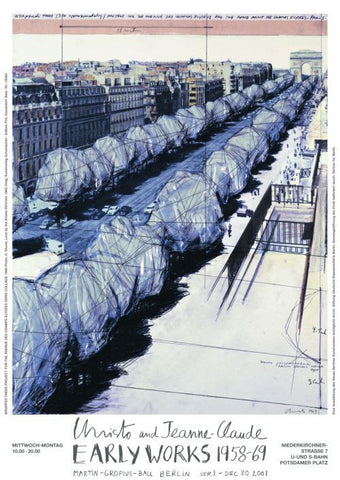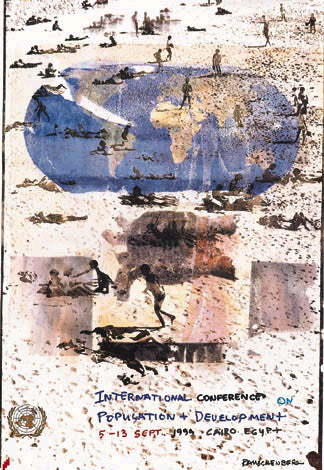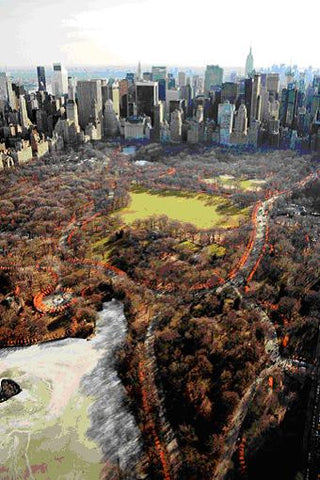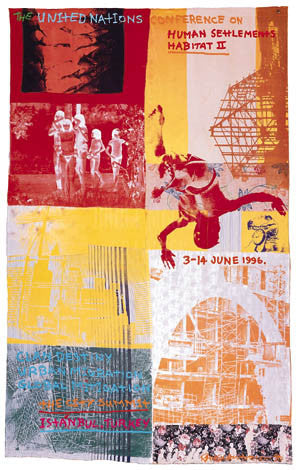Sustainable Transit
On April 1, 2019, New York became the first city in the United States to adopt congestion pricing, a cause the Nurture Nature Foundation has championed for years. Why is this such momentous news for the environment, and how did we get there?
TRANSIT AND THE ENVIRONMENT
One of the main areas on which NNF has focused its resources is the promotion of sustainable transportation systems, including adequate use of mass transit. Although creating a sustainable transit system may not seem inherently like an environmental issue, it is very much so. The majority of the world’s population today lives in cities. A well planned city can be very beneficial to the environment, enabling low-carbon lifestyles and reducing development pressure on regional ecosystems. Mass transit is one of the key reasons why. Public transportation can improve air quality, reduce greenhouse gas emissions, save energy, and facilitate compact development, conserving land and decreasing travel demand. Although New York is a leader in mass transit, accounting for an astonishing 26.6% of all public transportation trips in the nation, the city’s transit system has become overcrowded and underfunded over time, its infrastructure is aging, and its price has constantly increased. Recognizing the relationship between a viable transit system and the environment, NNF has made it a priority to address these problems.
A BALANCED TRANSPORTATION SYSTEM
NNF’s founder, Theodore Kheel, was a longstanding advocate of mass transit. As early as 1965, he made headlines urging that tolls charged to drive cars into NYC be doubled and the proceeds used to help the City’s struggling transit system. In a news conference that can be seen here, he and the father of congestion pricing, William Vickrey, presented their findings on how to create a balanced transportation system to Mayor John Lindsay. Over the following decades, Kheel continued to speak out, write, and even litigate in an effort to achieve a more balanced transportation system for New York-- one where driving was not unduly encouraged and mass transit was adequately funded.
As head of Nurture New York’s Nature, a program of NNF, Kheel conceived a new project in 2007 to help the cause of balanced transportation. At the time, Mayor Bloomberg was advocating a congestion pricing plan that would charge cars coming into the city about $10 a trip, and use the proceeds to raise public funds, which could be used for mass transit among other projects. In response, Kheel announced a $100,000 grant to study the feasibility of a “Bolder Plan”, one that would impose a charge on incoming cars sufficient to totally eliminate the transit fare in the Manhattan business district. The project culminated in a report, called “Balancing Free Transit and Congestion Pricing”. Free Transit Report (PDF), which Kheel sent to New York City’s Mayor Bloomberg, with the following introduction:
"The fundamental principle behind the plan is that car travel and mass transit are interrelated, like two sides of an equation, two weights counterpoised on a scale. Ideally, there should be a balance, but instead, our system is enormously, unconscionably out of balance. This report shows how we can correct that."
The transit report funded by NNF generated news coverage and was helpful in highlighting the relationship between tolling and transit funding. The results of the study showed, however, that complete elimination of the transit fare would require a much higher congestion charge than Bloomberg had proposed. In the political climate of the time, that was fatal. Indeed, even the more modest Bloomberg proposal was ultimately defeated in the New York legislature in 2008. New York was not yet ready for congestion pricing, nor for that matter, was any other city in the country.
Notwithstanding the state’s rejection of congestion pricing, NNF continued funding work in this area, devoting significant resources to both research and advocacy designed to bring the issue of congestion pricing back to the legislature when the time was ripe. The substantial work done in that period lay the groundwork for a renewed, and ultimately successful initiative a decade later.
THE BALANCED TRANSPORTATION ANALYZER
A major contribution NNF made was to fund the development of a Balanced Transportation Analyzer, dubbed the “BTA”, which became a critical tool of analysis for anyone considering traffic pricing options in New York, and contributed enormously to the understanding and ultimate adoption of congestion pricing in 2019.
The BTA grew out of NNF’s original transit report that began in 2007 and was published the following year. For the project, NNF had retained an economist named Charles Komanoff to model and quantify the costs and benefits of different congestion pricing proposals. Komanoff developed a sophisticated spreadsheet to do this, which could measure the effect any given change in subway fares or automobile tolls would have on an array of parameters, such as revenues, traffic congestion, pollution, etc. Although developed initially to determine the feasibility of one particular plan, the model could be used to assess any traffic pricing plan for New York City, and was therefore an ideal quantitative tool for analyzing the issue generally. Realizing this, NNF continued to fund updates, expansions, refinements, and improvements of the tool, to ensure it would be of maximum use on an ongoing basis to the transit community and public policy makers, as well as legislators and others.
In the course of its development, the BTA was vetted and endorsed by a wide range of transit experts. Renowned transportation expert "Gridlock" Sam Schwartz described it as the "best [modeling] tool that I have seen in my nearly 40 years". Governor Andrew Cuomo's Fix NYC Advisory Panel, which came up with the recommendations that paved the way for the adoption of congestion pricing in New York in 2019, cited the BTA as the basis for the panel's conclusions in its final Report. Before that, the transit advocacy coalitions MoveNY and Fix Our Transit, also relied on the BTA in developing their proposals. The BTA continued to help in the analysis as the details of implementing the 2019 legislation were worked out. See e.g. the July 2023 Report by Charles Komanoff and Gernot Wagner.
The BTA is available today to anyone interested in analyzing and understanding different traffic pricing options in New York City. Meanwhile, new versions of the BTA are now in development for other cities. To learn more, visit NNF’s BTA webpage, which includes a video explaining the BTA, a Powerpoint about it, and the latest version of the actual spreadsheet itself to download.
EDUCATING FOR THE FUTURE
NNF has in recent years also devoted resources to educating the next generation about the important transit issues of our day, just as NNF supported other types of educational endeavors before (see here and here). In the transit arena, NNF made a commitment in 2016 to fund a faculty position for a Kheel Visiting Fellow in Transportation at Hunter and its Roosevelt House Public Policy Institute. Since then there have been several visiting fellows. Former New York City Traffic Commissioner Sam Schwartz, a leading transit expert and advocate, has served as the Kheel Fellow multiple times. His students have carried out research projects on critical policy issues such as congestion pricing, generational trends in transportation use, and autonomous vehicles. Charles Komanoff, the developer of the BTA, also served as a two-time Kheel Fellow, whose coursework included a class on the “Political Economy of Congestion Pricing.” A former senior policy advisor to Governor Cuomo, Howard Glaser, served as a Kheel fellow as well, teaching a course on “Transporting New York: Sustainable Mobility in the 21st Century”. In addition to their teaching activities, the Kheel Fellows have held a variety of forums on transit issues at the Roosevelt House and have helped connect students to transit professionals. Panel discussions open to the public were held at the Roosevelt House under the Kheel fellowship program in 2018, 2019, 2021, and 2024.
READ MORE
In addition to the activities described here, NNF has also made donations to various nonprofits that support transit reform, and employed a consultant for several years who later went on to found MoveNY, a coalition of groups dedicated to transit reform. For news coverage of NNF's transit work over the years, visit our page on Transit Reform Efforts News.
